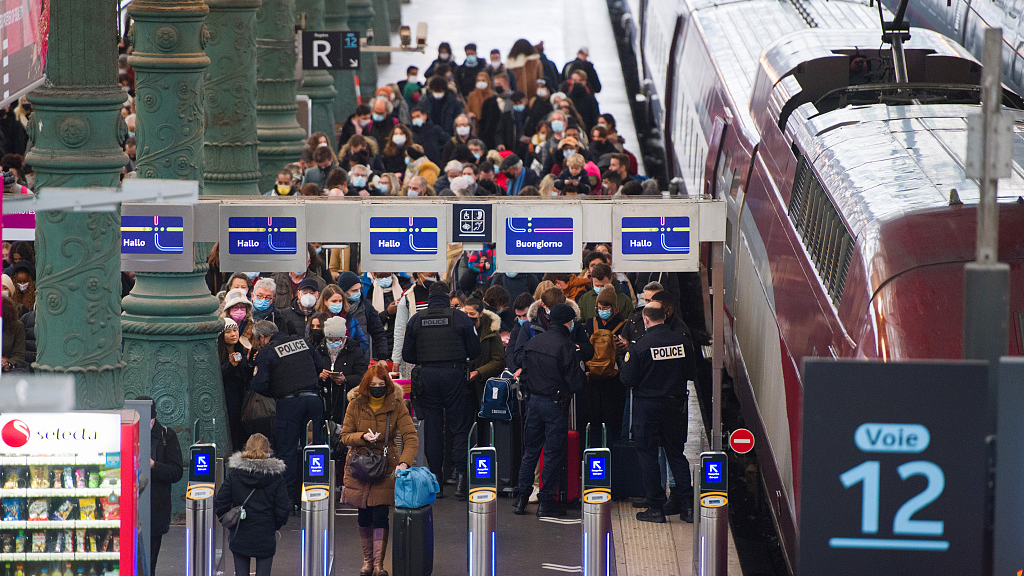
French border police check the COVID health passes of travelers on the Thalys arrivals platform at Gare du Nord train station in Paris, France, December 20. 2021. /CFP
Europe is witnessing a record jump in new COVID-19 infections as the fast-spreading Omicron variant takes hold in the region during the Christmas holidays.
According to the data from the health office, COVID-19 infections in France hit a record for a second straight day, with new daily cases totaling 94,124 in France on Friday. That added over 2,500 cases to the previous day's tally.
The variant has spike cases to record a high in the U.K. and Italy in the runup to the holidays. French Health Minister Olivier Veran predicted earlier this week that the Omicron strain will become dominant in France during the period between Christmas and New Year's.
The health ministry said that Italy also reported a second successive record daily tally of COVID-19 cases on Friday, with new cases hitting 50,599 against 44,595 a day earlier.
The country has registered 136,386 deaths linked to COVID-19 since its outbreak emerged in February last year, the second-highest toll in Europe after Britain and the ninth-highest in the world.
Britain reported another day of record COVID-19 cases on Friday, with new estimates showing swathes of London's population are carrying the virus, underlining the relentless advance of the Omicron variant. Government data showed 122,186 new cases, up from 119,789 on Thursday and marking the third day of cases above 100,000.
However, on Tuesday, UK Prime Minister Boris Johnson, who has staked considerable political capital on the Christmas of 2021 being "considerably better" than the previous year, ruled out new restrictions before the day itself, saying that there was uncertainty about the severity of Omicron and hospitalization rates.
Ireland on Friday reported its highest number of daily COVID-19 cases since the pandemic began. The country's health department reported 11,182 positive cases, topping the 8,248 on January 8 during the country's deadliest wave.
Ministers took extra precautionary steps like ordering bars and restaurants to close at 8 p.m. and reducing the capacity in all public events to curb the spread of Omicron and protect its hospitals from a fresh surge.
While recent research on Omicron suggests it has a lower hospitalization rate than previous variants of COVID-19, health officials have maintained a cautious note about the outlook.
"There is a glimmer of Christmas hope... but it definitely isn't yet at the point where we could downgrade that serious threat," Jenny Harries, head of the UK Health Security Agency, told the BBC.
"What we have got now is a really fine balance between something that looks like a lower risk of hospitalization - which is great news - but equally a highly transmissible variant and one that we know evades some of our immune defences."
(With input from Reuters)


